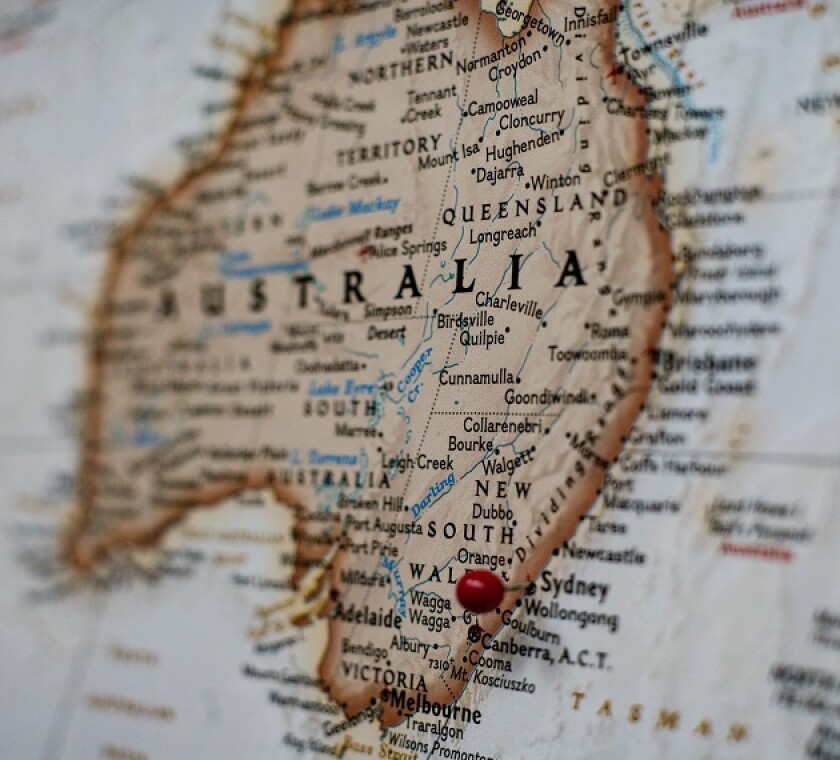In the case of Deputy Commissioner of Taxation v. State Grid International Australia Development Company Limited [2022] FCA 139, the Federal Court has applied freezing orders to freeze assets/accounts up to the value of AU$220 million on a purported capital gains tax (CGT) event that would occur one day after the hearing.
Importantly, the actual tax liability and CGT event had not occurred and had not been definitely calculated, but the Australian Taxation Office (ATO) considered there was a high risk that the sales proceeds would be immediately transferred outside of Australia and thus urgently sought to intervene with these freezing orders.
The case highlights that in cross-border merger and acquisition transactions, where the ATO is of the view that it is or will be owed tax and that there is a risk that the cash proceeds or assets will be sent offshore, it may intervene even where the taxable event has not occurred.
As to the facts of the case, in December 2021, Brookfield Asset Management Inc proposed to acquire all shares in AusNet Services Limited (AusNet), an Australian listed company. AusNet’s majority shareholder at the time was State Grid International Australia Development Company Limited (a Hong Kong incorporated company) (State Grid) which was itself a subsidiary of a Chinese-State owned electric utility corporation.
The consideration for the proposed purchase of the AusNet shares was approximately AU$1.9 billion and the estimated CGT tax liability from this transaction was AU$220 million. State Grid had obtained tax advice that this transaction would not result in an Australian tax liability by State Grid on the basis that Australia’s tax rules in Division 855 of the Income Tax Assessment Act 1997 would apply to disregard any capital gains made by a foreign resident that was not taxable Australian property.
The Commissioner of Taxation (Commissioner) on the other hand disagreed and contended that the transaction was a taxable event. Further, the Commissioner had reasons to believe that the proceeds of the transaction would be immediately transferred outside of Australia, thus in order to proceed with the freezing order, it conducted and issued State Grid with a ‘special assessment’ on the basis that a capital gain would arise from the proposed transaction and an AU$220 million tax liability would be payable.
It is extremely rare for the Commissioner to issue a special assessment before a taxable event has occurred. This case highlights the lengths that the Commissioner is willing to go to protect its tax revenue.
Companies that are undertaking cross-border M&As should be aware that the Commissioner can access publicly available information to become aware of such transactions and the ATO may intervene where it considers that an Australian tax liability would arise from the transaction. Companies should always obtain legal and tax advice in such transactions and beware of the tax risks.
Lastly, as set out in Schedule A of the freezing orders, it is worth noting that the ATO cannot, without leave of the court, use any information obtained as result of the freezing order to commence civil or criminal proceedings and it also cannot seek to enforce this freezing order on assets outside of Australia.
Australian 2022–23 Federal Budget
The 2022–23 Australian Federal Budget has been set for March 29 2022. It is a Federal election year and the election will likely occur in May, so this Federal Budget will be extremely important to many Australians as well as any foreign parties/investors that have an interest in Australia.
As Australia emerges from ‘lock down’ type conditions, it is expected that the Budget will focus more on real tax reform (for example related to international tax, corporate residency, double tax treaties and trust rules) rather than a principal focus on economic stimuli initiatives, as in recent years.
Kelvin Yuen
Senior associate, DLA Piper












